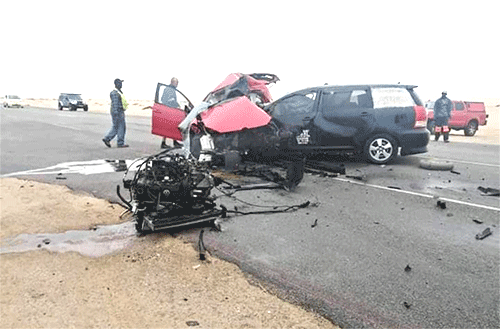ONGWEDIVA – Plans are in the pipeline to eliminate seven-seater sedans following complaints that they are not safe for transportation, while their carbon emissions allegedly compromise the environment.
Deputy Director for Transportation and Regulation in the Ministry of Works and Transport, Damien Mabengano, said this during the official opening of a three-day workshop.
Underway in Ongwediva, the workshop is on public passenger road transportation within towns.
It is aimed at creating awareness of the draft Public Passenger Road Transport Bill and its regulation, and developing guidelines for the management of public passenger transport in cities and taxis.
“As much as the sedan transportation business is deemed the survival mode for many, we should not brush off the fact that the vehicles are not safe for human transportation.
Those vehicles are speeding; they are transporting four times a day over a long distance without resting; this is why drivers get tired, resulting in accidents,” Mabengano said.
He added, “We are now engaging the stakeholders and law-enforcement so they go educate and explain to the people what is happening.”
One of the lawmakers at the same workshop supported the idea, saying seven-seater drivers are reckless.
“Our roads are already deadly due to reckless driving attitudes ,and vehicles that are not fit for transportation are adding fuel to an already-burning fire,” he said.
He proposed that operators team up and purchase minibuses, and carry on with business as business partners.
He further said the lives of passengers are not in their minds but they are only concerned with the earnings.
Shuutheni Kamati, a long-distance driver, warned the officials, saying they better stop with their plans. “We are fighting hunger and unemployment; the government is creating unemployment; what are they really trying?” a puzzled Kamari wanted to know.
Another transporter, Silas Petrus, was equally unimpressed.
“It’s better they limit our driving and transportation; otherwise, their plans will put us on the streets,” he said, adding that plans to eliminate seven-seaters only mean “promoting unemployment since most of them depend on transportation” for survival.



